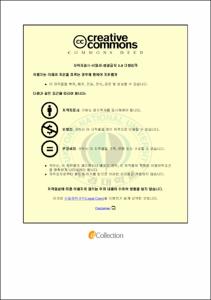초등 영어 교사용 지도서에 제시된 교실 영어의 언어 형식 사용 빈도 분석 -3학년을 중심으로
- Alternative Title
- An Analysis of Language Forms in the Teachers' Guides for the 3rd Grade English Textbooks
- Abstract
- These days TETE, Teaching English Through English, has been drawing more attention from English teachers in Korea since the government suggested it as one of the key concepts of the Public English Education program in 2008. In response to this, a great deal of research about classroom English has been conducted. However, there is a growing concern regarding the difficulty of the language forms used in classroom English.
The purpose of this research is to see how certain over-difficult language forms are presented in classroom English in the teachers' guides for the 3rd grade English textbooks. The researcher found it meaningful to investigate the conditions for using difficult language forms in specific learning activities, such as songs, games and role-plays. Four English teachers' guides for the 3rd grade English textbooks were randomly chosen and analyzed in terms of language forms. In those guidebooks, the researcher frequently found language forms that were far beyond the language competence of 3rd grade elementary school students: the perfect tense, relative pronoun, noun clause and participial construction.
The results of the research are as follows. Firstly, all of the English teachers' guides presented language forms in the classroom that are too difficult for 3rd grade elementary school students to understand. The frequency of using those language forms differed in books, and one guidebook used difficult language forms five times more than another guidebook. Also, the difficulty level of those language forms does not seem to have been considered in classroom English. There were also combinations of two or more of those language forms in one sentence. Secondly, difficult language forms were used a lot when instructing play activities, ranging from 22% of the total difficult language forms used to 46%. They were used, principally, in game activities, secondly, in role-play activities. Relative pronouns and noun clauses are also found to be used more than the other two language forms. The present perfect tense was used less, but it could be more difficult for low level learners.
A number of suggestions may be made on the basis of this study. First, classroom English in teachers' guides should be appropriated to learners' comprehensible level and language competence. Second, classroom English in teachers' guides should be presented in a comprehensible way. When it comes to explaining complex activity procedure to students, there are alternative possibilities, such as using computer images linked to the text or incorporating teacher's body language rather than using language forms too difficult for learners to directly understand. Last, in this study the classroom English examined in the teachers' guides only focused on 3rd grade elementary school English. As such, in the future, it is necessary to study classroom English in 4th, 5th, and 6th grade, and those studies should also be coherent with the middle school English curriculum.
- Issued Date
- 2012
- Awarded Date
- 2012. 8
- Type
- Dissertation
- Publisher
- 부경대학교
- Alternative Author(s)
- Shin, Myung Jae
- Affiliation
- 부경대학교 교육대학원
- Department
- 교육대학원 영어교육전공
- Advisor
- 오준일
- Table Of Contents
- 목 차
Abstract vi
Ⅰ. 서론 1
1.1 연구목적 및 필요성 1
1.2 연구과제 3
1.3 연구의 구성과 제한점 4
Ⅱ. 이론적 배경 5
2.1 제 2언어 습득 이론 5
2.2 제 2언어 습득과 교실영어 6
2.3 의사소통능력과 문법 8
2.4 선행연구 12
Ⅲ. 연구의 방법 16
3.1 분석 대상 16
3.2 분석 기준 28
3.3 자료 수집 및 분석 방법 35
Ⅳ. 분석 결과 및 논의 37
4.1 지도서 문법항목 빈도 분석 37
4.2 놀이 활동 지도시 교실영어에 사용된 문법항목 빈도 분석 45
Ⅴ. 결론 및 제언 54
5.1 결론 54
5.2 제언 56
참고문헌 58
62
63
64
65
66
- Degree
- Master
- Files in This Item:
-
-
Download
 초등 영어 교사용 지도서에 제시된 교실 영어의 언어 형식 사용 빈도 분석 -3학년을 중심으로.pdf
기타 데이터 / 3.13 MB / Adobe PDF
초등 영어 교사용 지도서에 제시된 교실 영어의 언어 형식 사용 빈도 분석 -3학년을 중심으로.pdf
기타 데이터 / 3.13 MB / Adobe PDF
-
Items in Repository are protected by copyright, with all rights reserved, unless otherwise indicated.